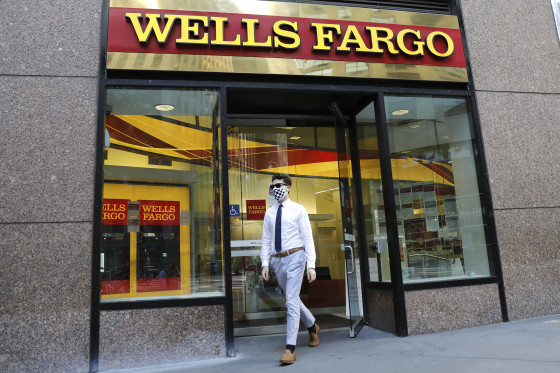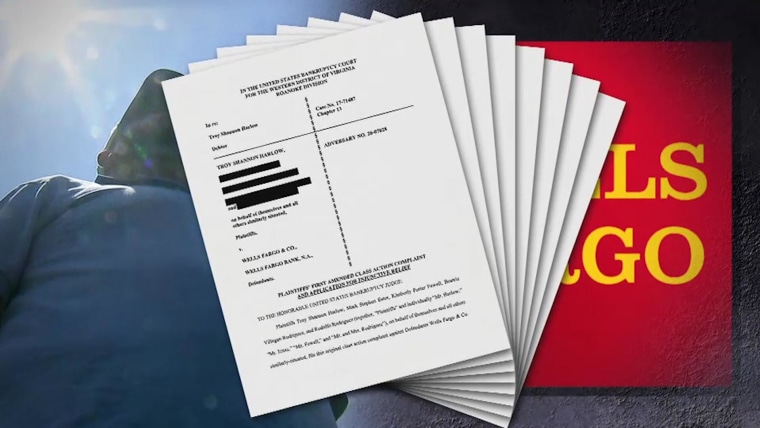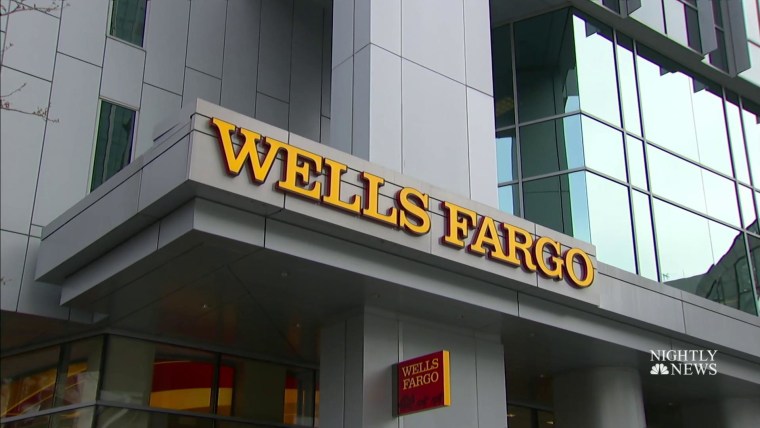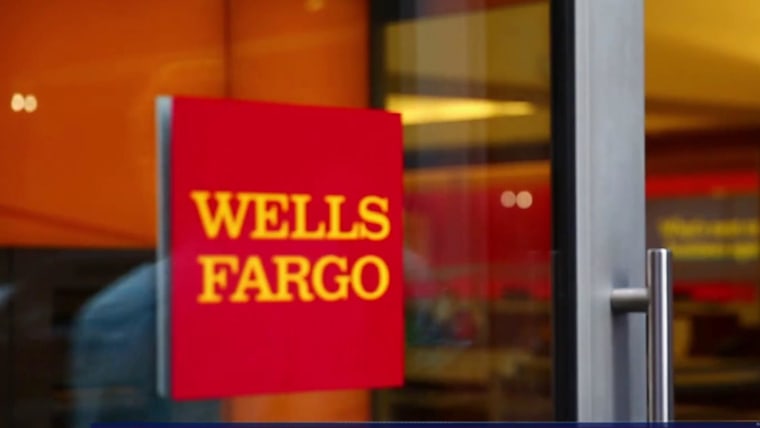Troy Harlow has always made sure to pay his monthly mortgage bill on time, even after he filed for personal bankruptcy protection in late 2017 following a kidney transplant that put him on permanent disability.
"I needed to have a place to live," Harlow said in an interview. "I keep everything paid because I know it has to be paid."
But Wells Fargo, the bank that handles Harlow's mortgage, had other ideas for him.
On April 29, without Harlow's knowledge or permission, Wells Fargo told the bankruptcy court overseeing his payment plan that he had asked the bank to pause his mortgage payments because he had been hurt by COVID-19. Harlow, 48, of Buchanan, Virginia, made no such request and had continued to forward the full amount owed on his mortgage to Wells Fargo, court documents show.
The bank claimed that it had placed Harlow in a forbearance program, a temporary arrangement under the CARES Act aimed at helping borrowers who attest to financial hardship related to the coronavirus. Under the program, borrowers whose loans are financed by government-sponsored entities like Fannie Mae and Ginnie Mae can stop making payments for up to a year. Harlow's mortgage was originated by the Federal Housing Administration and went into a pool of loans sold to investors by Ginnie Mae.
Forbearance plans don't reduce the amount outstanding on a mortgage, and borrowers must pay all that is owed later, although under the CARES Act, additional fees don't accrue during the hiatus.
In mid-May, Harlow's attorneys learned of Wells Fargo's move and immediately objected to it in bankruptcy court. The bank's request put Harlow's court-approved bankruptcy repayment plan at risk.
"I was just astounded that this was going on behind my back," Harlow said. "I hope we can get this straight, because I do not want to lose my house."

Harlow's attorneys say he isn't alone. They have identified more than a dozen cases in Virginia, as well as cases in Alabama, Arizona, Florida, Kansas, Louisiana, Michigan, Missouri, New Jersey, North Carolina and Texas, where Wells Fargo has wrongly claimed that borrowers asked to pause their mortgage payments in forbearance plans. The lawyers have also found that the bank put through secondary requests for forbearance on behalf of homeowners who had asked to participate in the program initially but who no longer wanted to.
In some cases, the bank withdrew the improper forbearance notifications after borrowers' attorneys alerted them to the errors. But Wells Fargo didn't take responsibility for the mistakes, court documents show.
Erroneous forbearance filings in Chapter 13 bankruptcy cases can put borrowers' homes at risk of foreclosure and represent a fraud against the bankruptcy court, said Thad Bartholow, a lawyer at Kellett & Bartholow who has sued the bank on behalf of wronged borrowers. The erroneous filings can also hurt consumers' credit reports, which are relied upon by other lenders and prospective employers, and generate unneeded legal costs.
Mary Eshet, a spokeswoman for Wells Fargo, provided a statement to NBC News.
"During this unprecedented time, we've focused on ensuring that our customers who need assistance receive the benefits of available relief programs," the statement said. "In the early days of the pandemic, we provided immediate payment relief to customers in bankruptcy if a review of their court filings indicated they were impacted by COVID-19 or if they had a loan modification review in process. In those cases, we notified the customers or their attorneys and filed a notice with the court. We followed up with customers in these circumstances after some raised questions and, in the majority of cases, those we have contacted wanted the payment relief. If a customer does not want a forbearance, we remove it and notify the bankruptcy courts."
Full coverage of the coronavirus outbreak
None of the borrowers in the lawsuit who were contacted by NBC News told the bank that they'd been affected by COVID-19, and none had requested the bank's assistance because of it. Nor had they requested loan modifications when Wells Fargo claimed they wanted forbearance. In addition, none of the borrowers or their attorneys say they were contacted by Wells Fargo.
Asked about the discrepancies, Wells Fargo said that because it had seen references to COVID-19 in the borrowers' court filings, it provided forbearance.
Wells Fargo is the nation's fourth-largest bank, with $1.95 trillion in assets. On Tuesday, the bank reported a loss of $2.4 billion for the second quarter and slashed its dividend.
NBC News couldn't determine the full extent of Wells Fargo's erroneous forbearance filings; so far, the only situations to emerge have involved borrowers whose payments are monitored by bankruptcy courts.
Wells Fargo doesn't appear to reap significant financial benefits from the filings, mortgage servicing experts said. But banks handling loans in forbearance programs under the CARES Act do get nominal amounts for some work.
The Wells Fargo spokeswoman declined to say whether the bank has benefited financially from making unrequested forbearance filings.
Implementing forbearance plans without customer approval is reminiscent of other troubling practices at Wells Fargo in recent years.
In 2016, the bank was found to have opened millions of accounts that customers hadn't requested, and a year later, it admitted to having forced auto insurance on auto buyers who didn't need it.
Also in 2017, the bank was accused of having made unauthorized changes to some borrowers' mortgages, extending the terms of the loans and increasing the amounts homeowners would ultimately owe the bank. The case generated a settlement of almost $14 million, court records show.
Resignations of top Wells Fargo executives followed, as did compensation clawbacks and regulatory actions. In 2018, responding to the consumer abuses at the bank, the Federal Reserve Board restricted its growth until Wells Fargo "sufficiently improves its governance and controls." The restriction remains in place.
Earlier this year, Wells Fargo paid the U.S. government $3 billion in a civil settlement and deferred prosecution agreement related to the fake accounts scandal. Setting up the fake accounts was encouraged to prove that the bank could sell customers an array of financial products, a metric closely watched by investors.
Wells Fargo's erroneous claims that Chapter 13 borrowers had asked for forbearance plans could have consequences for the borrowers and for others.
First, Wells Fargo's claims raise borrowers' costs, because their attorneys must act to correct the problem. In addition, the bank's actions increase the work for judges and Chapter 13 trustees overseeing consumers' bankruptcy payment plans.
More significant, such moves by Wells Fargo can imperil consumers' bankruptcy payment plans, which are designed to give them fresh starts through court-approved debt repayments. Chapter 13 trustees monitor the plans closely.
In a Chapter 13 plan, a debtor has promised to make mortgage payments approved by the court. When he or she doesn't make the payments, the bank servicing the loan may begin foreclosure proceedings.
When borrowers are in Chapter 13 plans, forbearance programs can be tricky and potentially problematic. Under the plans, creditors share in set amounts that borrowers agree to pay every month, and if mortgages are unpaid, the money can go to other creditors. Because borrowers would still have to pay the amounts owed on the mortgages later, erroneous forbearance requests may mean higher payouts than borrowers agreed to under their Chapter 13 plans or than they may be able to afford.
Download the NBC News app for breaking news and alerts
In some Chapter 13 cases, court-appointed trustees collect plan payments from borrowers and disburse them to creditors. In other jurisdictions, borrowers make their payments directly, as Harlow did.
"Borrowers in Chapter 13 are under enough stress — they need some certainty with what they're doing and knowing it is going to be handled in the way the court has instructed," said Malissa Lambert Giles, a lawyer representing Harlow at Giles & Lambert in Roanoke, Virginia. Wells Fargo's actions are "just a complete disregard for the court process and the way the system is supposed to work."
Participation in a forbearance plan also shows up on consumers' credit reports. If they are filed in error, the reports can be especially harmful for borrowers who are already struggling.
"If a borrower is looking to refinance a loan, a lender might say, 'You're in the middle of a forbearance — I'm not going to do the refinance,'" said Chi Chi Wu, a staff attorney at the National Consumer Law Center, a nonprofit organization that advocates for low-income families. "Or an employer could say, 'You're in forbearance. I don't want to hire you.'"
'It didn't even occur to me'
Kimberly Fewell, 50, of Charlotte, North Carolina, is another borrower who Wells Fargo improperly claimed had asked for a forbearance program. Her credit report was affected because of it, she said, because it incorrectly states that she hasn't made her mortgage payments.
On April 28, the bankruptcy court confirmed Fewell's Chapter 13 plan. Two weeks later, Wells Fargo filed a notice with the court claiming that she had requested to suspend her mortgage payments because of a COVID-19 financial hardship. Fewell had made no such request; she is considered an essential worker, and her income has continued throughout the crisis.
At the time the bank made the false filing, Fewell had forwarded all her required mortgage payments to the Chapter 13 trustee overseeing her plan. She learned what Wells Fargo had done when the trustee, not the bank, contacted her attorney asking how to disburse her payments while she was in forbearance.

"That was when I first heard the term 'forbearance,'" Fewell said. "It didn't even occur to me that it was done without my intent."
After Fewell's attorneys contacted Wells Fargo, the bank filed a notice with the court withdrawing what it described as "debtor's request for mortgage forbearance." Fewell, the debtor, had never made such a request.
In spite of the withdrawal, Fewell, a single mother of three grown children, said she fears losing her home because of Wells Fargo's error. She remembers when she moved in nine years ago, standing on the front steps with her children. "Mom, I'm so proud of you," she recalled her 15-year-old son saying.
The lawyers representing Fewell and Harlow say they don't know whether Wells Fargo's actions are mistakes or purposeful actions. In any case, the lawyers contend that the actions are negligent and a reckless disregard of Wells Fargo's responsibilities to the bankruptcy courts. They said they hope to learn more as their cases progress.
In some circumstances, banks can receive revenue when their customers apply for mortgage forbearance or arrange to defer payments under the CARES Act. Fannie Mae, for example, pays banks servicing loans up to $200 to cover legal fees associated with filing two notices of forbearance for each bankruptcy case. Once a borrower gets approval to defer his or her mortgage payments, a bank servicing the loan can receive $500 from Fannie Mae.
Starting next month, Fannie Mae has new rules benefiting loan servicers like Wells Fargo whose customers are in forbearance. Normally, banks handling home loans held by Fannie Mae must continue forwarding borrowers' mortgage payments to the government entity, even when they stop paying. That's money out the door for the banks.
But under the new rules, banks can stop advancing Fannie Mae borrowers' mortgage payments after four months if the borrowers have stopped paying because they're in forbearance programs.
The Wells Fargo spokeswoman declined to say whether the bank had sought reimbursement when making the erroneous forbearance filings or what happened to the money Harlow paid toward his mortgage, which the bank said was in forbearance.
According to the Mortgage Bankers Association, almost 4.2 million Americans were in forbearance plans at the end of June, representing about 8.4 percent of home loans.





